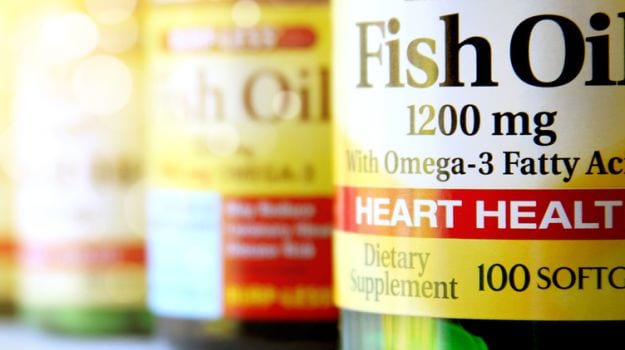Omega-3 fatty acid supplements may help the heart heal itself after a heart attack, according to a new study.
High doses, derived from fish oil and taken daily for six months after a heart attack, helped reduce scarring in the heart muscle and increase its ability to pump blood, researchers found.
"Omega-3 fatty acids have been studied for decades and have a direct beneficial effect on the heart," said senior author Dr. Raymond Y. Kwong, director of Cardiac Magnetic Resonance Imaging at Brigham and Women's Hospital in Boston. But in two trials of fish oil for heart attack survivors, the results had been conflicting, he told Reuters Health by phone. One trial found that the supplements did reduce the risk of death shortly after heart attack, while another found no benefit. Those trials administered one gram of the supplement per day.
For the new study, 360 heart attack survivors were randomly assigned to take either omega-3 supplements or a placebo, starting within a month of hospitalization and continued for six months. Patients in the omega-3 group took four times the dose as those in the previous two trials: four one-gram capsules of Lovaza, a prescription fish oil, every day. The placebo group took corn oil capsules. All patients received lifestyle counseling and were monitored by doctors to make sure their drug regimens did not interact adversely with additional fish oil or placebo pills. They had cardiac magnetic resonance imaging (MRI) before starting the capsules and after therapy six months later, according to a report released by the journal Circulation.
After six months, compared to the placebo group, those in the fish oil group had less fibrosis, or thickening and scarring, of the heart muscle in the region of the heart attack. The also had less blood left in the left ventricle of the heart after the heart muscle fully contracted, which means the heart was pumping more effectively. Some people are better able to absorb and utilize fish oil, and those with the biggest increase in red blood cell levels of omega-3 levels had a 13 percent reduction in leftover blood in the left ventricle, compared to a 6 percent reduction for the fish oil group overall.
There was some concern that very high doses of fish oil would increase the risk of bleeding for patients who are already taking blood thinners and other medications after heart attack, but there were no adverse effects in the study, Kwong said. "The initial insult of a heart attack will damage a part of the heart muscle, which dies, so the rest of the heart muscle has to work extra hard," Kwong said. The heart pump function is weaker and scar tissue develops, and over time these two processes can lead to heart failure, he said.
Though heart attack survival has greatly increased with improved treatments, heart failure later is still common, he said.
Past research has shown that omega-3 fatty acids help reduce inflammation.
"We know that things like the degree of cardiac damage and cardiac dysfunction are important factors, however the data from the current paper suggest that other factors, such as inflammation, may also play a role," said Andrew J. Taylor of the department of Cardiovascular Medicine at Alfred Hospital in Melbourne, Australia, who was not part of the study. "This is an important observation as it suggests another avenue for intervention to improve patients' outcomes" after a heart attack, Taylor told Reuters Health by email. But there needs to be more data on how to translate these findings to improved patient outcomes, he said.
Based on these results, it seems logical that patients who take omega-e supplements will have a lower risk of heart failure later than those in the placebo group, although this study didn't look at that, Kwong said. Insurance does not currently cover high-dose fish oil prescriptions for heart attack patients, and commercially available non-prescription fish oil supplements are not regulated for safety or consistent dose in the same way, he said.
"There's no way" that eating fish will provide the same amount of omega-3 that patients got in this trial, although in general it's not a bad idea to try to eat more fatty fish, Kwong said. The American Heart Association recommends two servings of fatty fish like salmon or albacore tuna per week.











